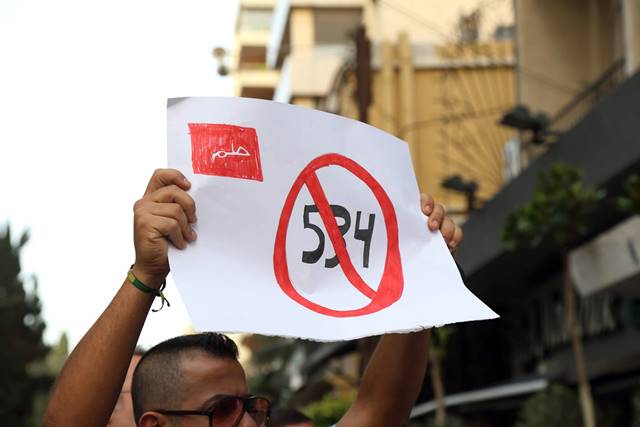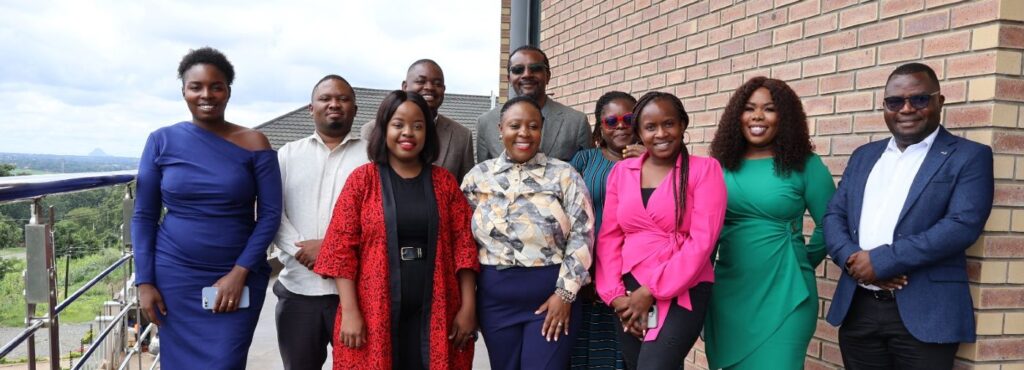On 26 January 2017, Lebanese LGBT activists celebrated a significant victory. For the fourth time in the past eight years, a Lebanese judge ruled that homosexuality was not illegal, applying a liberal interpretation of the Lebanese penal code. The abolition of the legal article in question, no. 534, which criminalizes sexual acts contradictory to the ‘laws of nature’, has long been the aim of Hivos’ partner Helem, a local LGBT rights grassroots organization.
Helem, in collaboration with other LGBT organizations and human rights lawyers, has consistently lobbied judges to liberally interpret article 534 and protect the rights and dignity of LGBT citizens detained by the police. In recent years, LGBT activists have become increasing more vocal in their condemnation of their treatment at the hands of the police. In 2016, for example, Helem organized a public protest against article 534 outside the notorious Beirut Hbeish police station where ‘morality’ police usually detain LGBTs.
Police officers have frequently used not only 534 but other equally ambiguous articles pertaining to ‘public morality’ to commit homophobic offenses against LGBTs or oppress individuals who do not fit into hetero-normative perceptions. Most LGBTs are often arrested under 534 for their appearance and not because they’ve been ‘caught in the act.’
By using the ambiguity of the 534 (particularly the term ‘laws of nature’) in his ruling and referring to laws that protect individual rights (namely article 183), Maalouf showed that judges in Lebanon can play a big role in protecting LGBTs as individuals and citizens from state repression and violence. In May 2016, another Lebanese judge, Hisham Qantar, issued a ruling that dismissed the prosecution of a citizen under article 534 because he concluded that expression ‘contrary to the laws of nature’ did not apply to a sexual relationship between people of the same sex. Judges made similar rulings in 2014 and 2009, again through a liberal interpretation of the ‘laws of nature.’
This more vocal activism and lobbying by the Lebanese LGBT activist community has yielded other significant results in recent years, most notably the more prominent role played by the Order of Physicians and the Order of Psychiatrists in publically rebuking and condemning human rights abuses against LGBTs by the various state apparatuses.
In 2012, there was public outrage when, following the arrest of over thirty men at a Beirut cinema for allegedly having gay sex, the detainees were subjected to anal examinations at the Hbeish police station mentioned above. Helem, in partnership with other local CSOs, campaigned against the horrific and traumatic procedure. First, they encouraged the Order of Physicians to forbid its members from carrying it out, and then got the general prosecutor to issue a circular banning it. In 2013, the Order of Physicians again intervened when a judge ordered anal tests to be carried out on five men arrested for supposed homosexual activities, announcing that this practice violated both medical ethics and human rights. Going further this time, the Order said that doctors conducting these tests would face disciplinary measures.
LGBT activists have also lobbied the Lebanese Psychiatric Society to take action against abusive psychiatrists and therapists who claim to be able to ‘cure’ homosexuality. In 2013, in a landmark statement for both Lebanon and the entire MENA region, the Society publicly stated that homosexuality is not a mental disorder and does not require treatment.
These achievements seem momentous for a country in a deeply conservative region where state abuse of LGBTs is rife. Lebanon’s LGBT organizations, several of whom are Hivos partners, have been able to operate with relative freedom. The rights of LGBTs in Lebanon are today more frequently discussed in the media (even though the reporting is sometimes more sensationalist than serious).
However, as is usual in Lebanon, a reality check is needed, because as local LGBT activists know, these are still baby steps in terms of comprehensive social, political and legal acceptance of LGBT rights.
First the rulings mentioned above, however progressive, are still restricted to the jurisdiction of the judge’s court and can be overruled by Lebanon’s Shura Council. They may influence future liberal interpretations of article 534, but they do not deter policemen from using the article to commit human rights abuses against LGBTs. Nor are all judges willing to widen their interpretation of 534 or use its ambiguous language to dismiss cases against LGBTs. Not only does article 534 remain, but a significant portion of the state apparatus is willing to use it to commit homophobic offenses.
While the medical community has condemned and prohibited human rights abuses committed by its members against LGBTs in police stations social attitudes remain on the whole negative and discriminatory, influenced by conservative conceptions of the family and religion. This conservatism extends to all aspects of individual and family life and presents an essential challenge for LGBT organizations and progressive human rights activists in Lebanon (For more on Lebanese attitudes towards sexuality, see this report by Hivos partner The Arab Foundation for Freedom and Equality).
But in the end, judge Maalouf’s ruling gives the LGBT activist community continuing hope that there are progressive public officials willing, within the remit of the law, to dismiss criminal prosecutions of LGBTs solely because of their non-heteronormative lifestyles. It also gives the LGBT movement in Lebanon drive and motivation to continue their efforts to overturn all forms of legal and social discrimination against all sexualities and gender identities.




